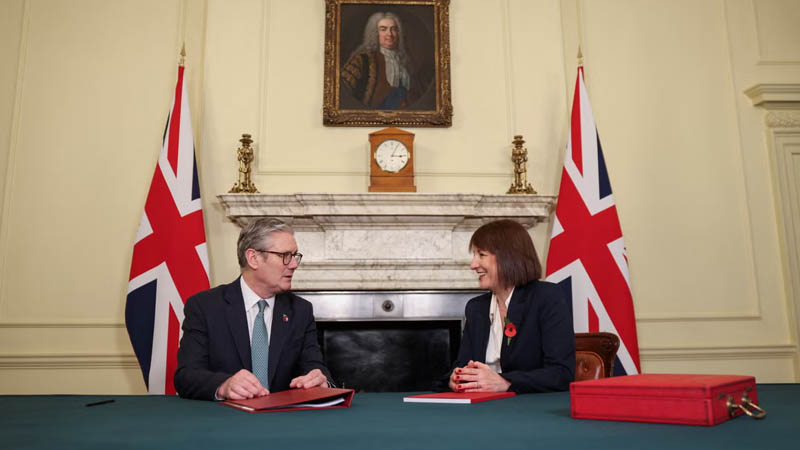
Sir Keir Starmer is reportedly set to overrule Chancellor Rachel Reeves by pushing for increased military spending, as Labour comes under mounting pressure to bolster its support for Ukraine. The Prime Minister will head to Paris on Monday for emergency talks with European leaders after the United States urged allies to step up their financial and military backing for Ukraine.
While Chancellor Reeves has been cautious about raising defence spending given economic constraints, Business Secretary Jonathan Reynolds insisted that the need for increased funding is widely recognised within the government.
“The whole Cabinet, the whole Government, I think most people in this country recognise the pressures the world is under, recognise more will have to be spent on defence,” Reynolds said. “Now the spending review will set out the roadmap towards that target.”
The UK government has committed to raising defence spending to 2.5% of GDP, but a clear timeline has yet to be announced. The Chancellor’s upcoming spending review on June 11 is expected to outline the financial strategy for reaching that goal. However, defence chiefs and Nato Secretary-General Mark Rutte have urged leaders to go further, suggesting that military spending should be increased to at least 3% of GDP.
Reynolds acknowledged the competing demands on public funds but stressed that “defence has to be the cornerstone of our national prosperity as well as our security.” He also suggested that contributions to intelligence services should be factored into the UK’s overall defence commitments, told Daily Express.
Meanwhile, Foreign Secretary David Lammy issued a stark warning at the Munich Security Conference, stating, “Putin will not go away.” He emphasized that, while it was promising that 23 Nato countries are now meeting the 2% defence spending target, “we all know we have to go upward.”
Lammy also reaffirmed the UK’s commitment to reaching 2.5% of GDP for defence, promising that a “pathway” to achieving this goal would be set out in the coming months. Adding to the urgency, Defence Secretary David Lammy cautioned that if Russia succeeds in Ukraine, the UK may need to triple its military spending to Cold War levels.
Starmer is also expected to use his defence spending push as leverage in upcoming meetings with Donald Trump in Washington. Downing Street remains committed to increasing defence funding but has yet to confirm when the 2.5% target will be met. Currently, the UK spends 2.3% of GDP on defence, with calls to increase this to at least 2.65%.
Amid rising tensions within the Labour government, Starmer’s push for higher military spending is likely to fuel further divisions within his administration. Meanwhile, US Vice-President JD Vance has doubled down on Washington’s stance, telling European leaders that they must “step up in a big way to provide for [their] own defence.”
Reynolds, however, sought to downplay tensions with the US, insisting that the UK could serve as “the bridge between European allies and our US allies” to strengthen transatlantic relations. As the debate intensifies, questions remain over whether Starmer can navigate Labour’s internal divisions and convince his Cabinet—especially Reeves—to back a significant increase in defence spending.







